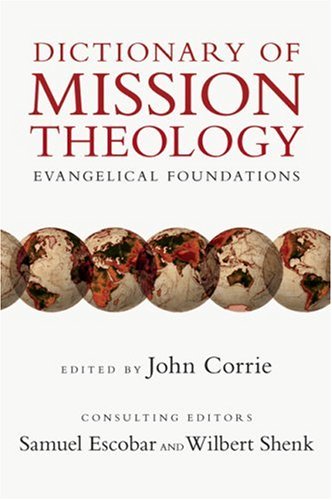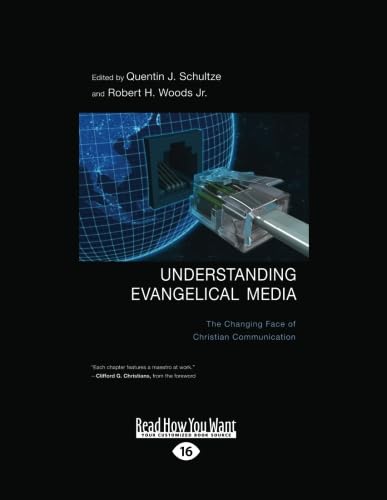Volume 33 - Issue 3
Ezra, According to the Gospel: Ezra 7:10
By Philip Graham RykenAbstract
For Ezra had set his heart to study the Law of the LORD, and to do it and to teach his statutes and rules in Israel (Ezra 7:10).2 To consider Ezra the priest, according to the gospel of Jesus Christ, the way to begin is by remembering a few of the things that Ezra did and said. In this way, we can begin to appreciate what God did in his life as a scribe and then appropriate what God can do in our own lives as students, pastors, and professors.
For Ezra had set his heart to study the Law of the LORD, and to do it and to teach his statutes and rules in Israel (Ezra 7:10).2
To consider Ezra the priest, according to the gospel of Jesus Christ, the way to begin is by remembering a few of the things that Ezra did and said. In this way, we can begin to appreciate what God did in his life as a scribe and then appropriate what God can do in our own lives as students, pastors, and professors.
1. Ezra’s Ministry
We are introduced to Ezra at the beginning of chapter 7. There we read that he came from a long line of priests, going all the way back to Aaron himself, the first high priest. We also read that Ezra was living among the exiles in Babylon and that he “was a scribe skilled in the Law of Moses” (Ezra 7:6). Ezra had gained knowledge of the Word of God. In fact, the rabbis considered him second only to Moses. Ezra was skilled in the Scriptures, which in his day referred to the Pentateuch. He was both called and equipped to serve as Israel’s priest.
In chapter 7, Ezra receives special permission to return to Jerusalem. By the authority of the king of Persia—Artaxerxes himself—Ezra was sent back to the holy city of God. Later we learn that he did not go back empty-handed, but bearing treasures of silver and gold—sacred items for worship supplied from the king’s own treasury. Ezra was given everything he needed to re-establish temple worship in Jerusalem, including sacrifices of atonement. The covenant community would resume covenant worship of their covenant God in the covenant city.
Artaxerxes must have recognized Ezra’s special talents because he granted the priest broad authority to take people back to Jerusalem, to levy taxes, to appoint judges, to teach God’s law, and to lead the people of Israel. At the end of chapter 7, Ezra says, “I took courage, for the hand of the Lord my God was on me, and I gathered leading men from Israel to go up with me” (7:28). Ezra had the will to lead.
He also had a heart for holiness. We see this in chapters 9 and 10, where he confronts a major sin in the life of Israel—intermarriage with women who practiced pagan idolatry. The same issue came up again when Nehemiah was governor, and Nehemiah dealt with it very decisively: “I confronted them,” he said, “and cursed them and beat some of them and pulled out their hair” (Neh 13:25). It was an interesting approach to church discipline, to say the least!
But Ezra took a very different approach. When he found out that God’s people had been faithless in matters of worship and marriage, he tore his clothes, pulled his own hair, and sat in mourning for an entire day. Then at the time of the evening sacrifice he bowed down before God and offered a prayer of confession, in which he numbered himself among the transgressors: “O my God, I am ashamed . . . for our iniquities have risen higher than our heads. . . . Behold, we are before you in our guilt, for none can stand before you because of this” (Ezra 9:6, 15).
The effect of Ezra’s public confession was dramatic. The people followed their priest’s example by making their own confession: “While Ezra prayed . . . a very great assembly of men, women, and children, gathered to him . . . for the people wept bitterly” (10:1). Ezra’s tears did more to accomplish real spiritual change than all of Nehemiah’s angry words. He had a heart for holiness, and his heart became the heart of his people.
Ezra also had a mind for biblical truth. Perhaps the best example comes from Nehemiah 8, where Ezra gathers the Israelites to renew the covenant in Jerusalem. The heart of that renewal was the reading and preaching of God’s Word. Ezra gathered people in the square in front of the Water Gate, brought out the Book of the Law of Moses, and read it from dawn until noon. He not only read the law, but he also explained it. He and the other teachers “read from the book, from the Law of God, clearly, and they gave the sense, so that the people understood the reading” (Neh 8:8). This is one of our first and best models for expository preaching. This is what faithful gospel ministry is all about: reading God’s Word and giving the sense so that people can understand.
2. The Secret of Ezra’s Success
Ezra was a great man—one of the all-time heroes of the faith. He had the will to lead; he had a heart for holiness; he had a mind for biblical truth. If we want to follow his example, we should ask what made him so great and so good. What was the secret of Ezra’s spiritual success?
In one sense, it was the grace of God, of course, and the Bible is careful to point this out. Why did Ezra found favor in the eyes of the king? “The hand of the Lord his God was on him” (7:6). How was he able to make his journey back to Jerusalem? “The good hand of his God was on him” (7:9). Where did he find the courage to lead the people of Israel? Ezra speaks of God’s “steadfast love” and testifies, “the hand of the Lord my God was on me” (7:28). Ezra was a man under the hand of God.
It is only the gracious hand of God that enables a man or a woman to fulfill his or her calling in ministry. It is the hand of God that gives courage for spiritual leadership, humility for corporate repentance, and wisdom for teaching God’s Word. Praise God for the hand of guidance that has brought you to your present place of service, for the hand of providence that will supply all your needs, for the hand of discipline that will train you in righteousness, and for the hand of comfort that will sustain you through trials. The hand of God is on you for blessing.
But there is another side to all this. Ezra had the hand of God on him, but at the same time he had to be faithful to his calling. He was not a marionette, dangling uselessly until God pulled his strings. He was a human being, with a mind, a heart, and a will that was made to glorify God. Therefore, he needed to be faithful to the sacred trust that God had given him. He needed to train his gifts for ministry and then put them to good use.
Ezra did that. This is obvious from all the good that he accomplished. But the Bible also shows us what was inside the man, giving us an intimate glimpse into Ezra’s approach to life and ministry. Do you want to know what enabled him to exercise such an influential ministry? Look again at Ezra 7:10: “Ezra had set his heart to study the Law of the Lord, and to do it and to teach his statutes and rules in Israel.”
3. Studying, Doing, and Teaching the Law
This verse is one of the Bible’s best summaries of what it means to be a faithful servant of God’s Word. It is a wonderful verse for pastors, for seminary students, for theology professors—really, it is a wonderful verse for everyone. I know this from experience because I embraced this verse early in my time at seminary. I wrote it out on a note card and tucked it into the little Bible I carried in my briefcase. From time to time I would pull it out and meditate on it or pray over it. Over time, God used it to shape my understanding of what it meant to be a student and a teacher, a husband and a pastor. By the power of the Holy Spirit, he can use it to shape your life and ministry, too.
The logic of this verse is impeccable. There were three things that Ezra was committed to doing, and he had them in the proper order, like “A-B-C” or “1-2-3.” In fact, Ezra had them in the only order that makes any sense: he had his heart set on studying, doing, and teaching the Word of God. This was his heart commitment, the direction of his life, the settled intention of his soul.
3.1. Studying God’s Word
Start with studying. Before we can do what God wants us to do, or teach anyone else what God wants them to do, we need to know what God wants us to do, and that means studying God’s Word. Ezra had committed himself to doing that. We do not know his study habits, but we know that he was skilled in the Law of Moses. His “delight was in the law of the Lord, and on his law he meditated day and night” (Ps 1:2). Since he was raised in a family of priests, he had studied the Scriptures from his earliest childhood. He undoubtedly spent hours each day reading the Bible, pondering its meaning, and discussing its implications with other students and scholars. In those days, a scribe of Ezra’s stature would have committed large portions of Scripture to memory. The unrelenting ambition of his life was to know the Word of God.
After seminary I spent several months as an intern with William Still, the great Scottish minister who served in downtown Aberdeen. When I met him, Mr. Still was continuing the weekly preaching ministry he had exercised in the same pulpit for more than fifty years. Every day I would go and meet with him in his home to talk about pastoral ministry and the Christian life. One of the most amazing things about Mr. Still was his voracious appetite for learning something new from the Word of God. Here was a man who was well into his eighties, yet he had a boyish enthusiasm for any fresh insight into biblical truth. “We’re always learning, Philip,” he would say to me, “we’re always learning.” That is the kind of Bible scholar that Ezra was and that I hope to become: someone who is keen to learn God’s Word all the way through life.
3.2. Living by God’s Word
But Ezra did not stop there. He did not want merely to learn the Bible; he wanted to live it. So the Scripture says that he set his heart to do the law that he had studied. This meant loving the Lord his God with all his strength and loving his neighbor as himself. It meant keeping the Ten Commandments. It meant following all the regulations for priestly holiness and public worship. It meant doing everything he could to live by God’s law. Ezra understood that the only true theology is applied theology. I am reminded of the parishioner who met the preacher at the door after the service and said, “Pastor, that was a wonderful sermon.” To which the pastor replied, “Well, that remains to be seen, doesn’t it?” This was Ezra’s approach exactly. What good is it to study the Bible, unless we also live by it?
3.3. Teaching God’s Word
Then there was a third step: teaching God’s statutes and rules in Israel. Ezra would have taken issue with the famous advertising slogan: Just Do It! “No,” Ezra, would have said, “I can’t just do it. If I want to learn how to do it, I have to study it first, and then if it’s worth doing, I will be compelled to teach other people how to do it, too.” His slogan went more like this: “Don’t just do it! Study it, do it, teach it.”
Notice as well the scope of Ezra’s vision for ministry. He wanted to teach God’s law “in Israel.” He wanted to reach his entire nation with the Word of God. He saw that he had a responsibility to the wider spiritual community. It was his calling and privilege to spend long periods of time studying God’s Word. But this was not for his benefit alone; it was for the edification of the people of God. Eventually God granted Ezra his heart’s desire. When he read the Book of the Law to all the people in Jerusalem, he was teaching God’s statutes and rules in Israel–the Bible teacher for the kingdom.
But all of that came later. Ezra did not begin as a teacher; he became one. Sometimes people feel called to a teaching ministry, and they get right into teaching before they have done the hard work of really mastering the Bible. Then all they have to offer is their own spiritual experience; they cannot share the deepest riches of God’s Word. Or sometimes–and this is especially tempting for seminary students and pastors–they go right from studying to teaching without having the Word of God really transform their lives. It goes from the mind to the mouth without ever passing through the heart.
All of this is easy to apply. Like Ezra, you are called to be a student of God’s Word. We are all called to study God’s Word, and to do it, and as we have the opportunity, to teach it to others. This means spending time reading the Bible every day—not in an academic way, but in a devotional way, nurturing our love relationship with Jesus Christ. It means meditating on Scripture and memorizing it. It means devoting the very best of our powers to learning what God has said in his Word.
It also means paying special attention to new areas of personal obedience. We want to do more than study the Bible; we want to live by it. So what is God saying to you today that you need put into practice in your daily life? What will he say to you tomorrow and the day after that? Do not be content with what you have already attained, but strive to grow in godliness. Experience the fresh power of the Word of God.
Then once you start living the truth, then and only then can you be trusted to teach it to others. But bear in mind that this is the goal of all your studies. You do not study God’s Word for your own benefit, but for the sake of others. The knowledge you gain is a sacred trust that God has given you in order that you might give it away. So set your heart to study the Word of God, and to do it, and to teach it to wherever God calls you.
4. Studying, Doing, and Teaching the Gospel
All of that is important, and as you continue to meditate on this verse, God will bring it to life in your personal experience. But we need to take it one step farther and consider Ezra according to the gospel. When the Bible says that Ezra studied “the Law of the Lord” (7:10), we understand this to refer to God’s Word generally. When Ezra studied the law, he was also beginning to understand the gospel, for the grace of God and the promise of Jesus Christ are taught in Ezra as much as anywhere else in the Scriptures.
Yet we also know that Ezra lived before the coming of Christ, and to that extent, we can say that he did not know the gospel–not the way we know it. He did not know the incarnation of God the Son or the Virgin Birth of Jesus Christ. He did not know the miracles and parables of our Lord. He did not know his sufferings and death on the cross, or his triumph over the grave. Nor did Ezra know that Jesus would perfectly fulfill his own agenda for ministry: studying the law from beginning to end, doing it with perfection, and then teaching its true meaning in Israel. It was the Puritan John Flavel who said that Christ “preached the doctrine, and lived the application.” Ezra 7:10 is his verse, for Jesus Christ set his heart to study the Law of the Lord, and to do it, and to teach his statutes and rules in Israel.
To put this in a provocative way, I believe that Ezra would have given his entire ministry and everything he knew about the Bible to spend even a single day at an evangelical seminary or a gospel-preaching church today. The fullness of the ages has come in the salvation of God’s Son–what Ezra was waiting for all his life. So if he could be with us today, he would be asking the questions and we would be giving the answers.
What would happen, then, if we helped Ezra take his approach to life and ministry and bring it into relationship with Jesus Christ? For example, what if we took the word “law” and replaced it with the word “gospel”? Not that we do not need the law anymore, because we do, but the gospel is our salvation. So what if we took Ezra 7:10 and said: “I have set my heart to study the gospel of Jesus Christ, and to do it, and to teach the crucifixion and the resurrection in my community.”
4.1. Studying the Gospel
First, set your heart to study the gospel—not just to study hermeneutics, or Old Testament, or church history, or soteriology, but to study the gospel. If we take this approach, then in all our thinking about the Bible and its theology, we are drawn to the person of Jesus Christ. As we study the Bible, we are seeing how the sufferings of Christ and the revelation of his resurrection glory are worked out in all of Scripture. Then the overwhelming theme of our daily meditation is the grace of God for needy sinners. And each new theological insight you gain becomes a matter for praise as we return it to the glory of God. Set your heart to study the gospel.
4.2. Living by the Gospel
Then set your heart to do it. Jesus said the same thing to his disciples: “If you know these things, blessed are you if you do them” (John 13:17). Doing the gospel means living by grace. This is crucial for pastors and seminary students because we are learning so much Scripture that either we will become a spiritual giant or else we will become a bigger and bigger Pharisee. Our only hope is to live by grace, not striving to serve the Lord in our own strength, but depending moment by moment on the enabling power of his Holy Spirit.
Living by grace means accepting that you are a desperately needy sinner—a selfish, arrogant, and graspingly depraved individual who can be saved only by the blood of God. It means believing that Jesus died for your sins and that now your value before God is not based on how much you know or how well you are doing in your classes or how productive you are as a scholar or by how many people hear you preach or by any other human standard, but only by the merits of Jesus Christ. It means living in deep dependence on the enabling work of the Holy Spirit. And it means living for others in a Christ-like way so that his cross becomes the pattern for your discipleship and his resurrection becomes the power in your ministry.
Nowhere is this more crucial than in your home. When a man loves a woman with the love of Christ—the sacrificial love that he showed on the cross—it changes her entire life. But if he doesn’t, then even his ministry becomes bitter to her. And when a woman loves with the love of Christ–the submissive love he showed on his way to the cross when he did his Father’s will instead of his own–then she becomes more fully the woman that God is calling her to become. Understand that the most important test of our seminary education or our ministry is the way we treat the people we live with when they are hard to love.
4.3. Teaching the Gospel
Finally, set your heart to teach the gospel. To begin with, this means teaching the gospel in the church. I always think that about half the value of a seminary education depends on what you are doing in the church for ministry. I remember Tim Keller telling us that Reformed theology was like plutonium: if all you do is ingest it, it will make you sick; but if you wire it into your life and teaching, it is explosive. So take advantage of whatever opportunities you have to share what you are learning. John Witherspoon, who served as the first president of Princeton University, said, “True religion will give unspeakable force to what a minister says. There is a piercing and penetrating heat in that which flows from the heart.”
But teaching the gospel also means teaching it to people who do not even know it. Who have you shared the gospel with this week? Who is the person you are praying to lead to Christ in the coming year? By the power of the Holy Spirit, the gospel we study is to have a transforming influence on our community, our city, and our world. I pray that your theological education and your calling to ministry will not be wasted, but that through your personal ministry of the gospel, the things you are learning from the Scriptures will help bring people to a saving knowledge of Jesus Christ.
What is your heart set on this year? It is wonderful that the Bible says that Ezra had set his heart on studying and doing and teaching God’s law. It would be just as wonderful if God could write something similar about us: that we had set our hearts to study the gospel of Jesus Christ, to live in the power of his crucifixion and resurrection, and then to preach the cross and the empty tomb to others. To that end, may God “equip you with everything good that you may do his will” (Heb 13:21).
- ↑ Back This article is a lightly edited manuscript from a chapel sermon preached on October 2, 2008 at Trinity Evangelical Divinity School in Deerfield, IL.
- ↑ Back “Scripture quotations are from the Holy Bible, English Standard Version, copyright 2001 by Crossway Bibles, a division of Good News Publishers. Used by permission. All rights reserved.”
Philip Graham Ryken
Other Articles in this Issue
Salvation History, Chronology, and Crisis: A Problem with Inclusivist Theology of Religions, Part 2
by Adam SparksA fundamental requirement in an inclusivist understanding of the relationship between Christianity and other religions is evidence of God's salvific activity outside of any knowledge of Christ...
The Center of Biblical Theology in Acts: Deliverance and Damnation Display the Divine
by James M. Hamilton Jr.Acts 1:1 opens with a reference to what Jesus "began to do and teach"1 recounted in the Gospel of Luke, indicating that this second volume will carry the narrative of Jesus' actions and teachings forward...
Shared Intentions? Reflections on Inspiration and Interpretation in Light of Scripture’s Dual Authorship
by Jared ComptonIt was not too long ago that Kevin Vanhoozer answered the question Is There a Meaning in This Text? by relocating meaning in authorial intention,1 doing so even more robustly (not to mention, evangelically) than E...
The original question I was asked to address was "How does our commitment to the primacy of the gospel tie into our obligation to do good to all, especially those of the household of faith, to serve as salt and light in the world, to do good to the city?" I will divide this question into two parts: (1) If we are committed to the primacy of the gospel, does the gospel itself serve as the basis and motivation for ministry to the poor? (2) If so, how then does that ministry relate to the proclamation of the gospel?
My guess is that many of the people who read Themelios either are, or have aspirations to be, teachers in the world of Christian theological academia...






